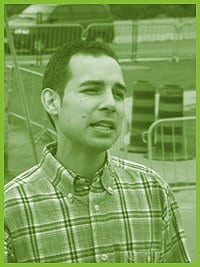At the annual GLBTQ town hall meeting, where people and organizations in the community get a chance to bring concerns to city council’s attention, praise rang out for the city’s support and recognition.
Four city council members – Mayor Bob Chiarelli and councillors Alex Munter, Clive Doucet and Madeleine Meilleur – hosted the sixth annual GLBTQ town hall meeting on Jun 11. About 15 people, including representatives of PFLAG, Bruce House, Pink Triangle Services, St John’s AIDS group and members of the GLBTQ community attended the informal gathering.
The evening was relaxed and jovial, with participants and councillors chatting informally and sharing jokes. Each time someone spoke up, it was to praise, not raze, city council – a far cry from the previous GLBTQ meetings when frustrations ran high.
“Ottawa has changed in a real positive way,” Bruce Bursey, president of Pink Triangle Services, Ottawa’s gay and lesbian social services agency, told the group gathered at city hall.
“There was a lot more angst in the room six years ago, as there should have been,” Mayor Bob Chiarelli told the group.
“There seems to have been a lot of significant movements made since then.”
Bursey couldn’t agree more with the mayor’s observation.
Just two years ago, the city only gave Pink Triangle Services $13,866 in funding. As of this year, the city now contributes $77,000 to the agency’s funding.
Bursey proudly told the mayor and councillors the extra money has helped start up some exciting programs. One is a Gay Men’s Wellness group that promotes healthy lifestyles. In addition, PTS has teamed up with the Ottawa West Community Centre to bring gay and lesbian programs to the city’s west end – representing the first time such services have been offered outside of the downtown core.
Bursey was particularly excited about its newest project, a GLBTQ website, which was launched during Pride Week. The website brings together GLBTQ resources that, until now, were scattered on various sites.
“This will be a one-stop shop for information about our community and the groups and services that are available to our community,” Bursey says.
Right now, this is what PTS calls a “virtual community centre.” The hope is to actually set up a real community centre to serve GLBTQ people.
In addition to PTS’ update to city council, the meeting turned into a praise Alex-Munter night.
Munter, an openly gay city councillor, is leaving his post in December. Participants used the meeting as an opportunity to thank him for the work he’s done.
“You have a real champion in the person of Alex,” fellow councillor Madeleine Meilleur says. “Alex was excellent in sensitizing us to your needs and your issues.”
Some participants expressed concern that GLBTQ issues may fall by the wayside when Munter leaves city council. They’re worried others won’t pick up the cause.
Munter, however, is confident that won’t be the case. But he also put the onus back on members of the community to not let the issues die.
“I think it’s important for people to speak up for themselves,” Munter says. “The folks at city hall aren’t going to know what the issues are, unless you speak up.”

 Why you can trust Xtra
Why you can trust Xtra


